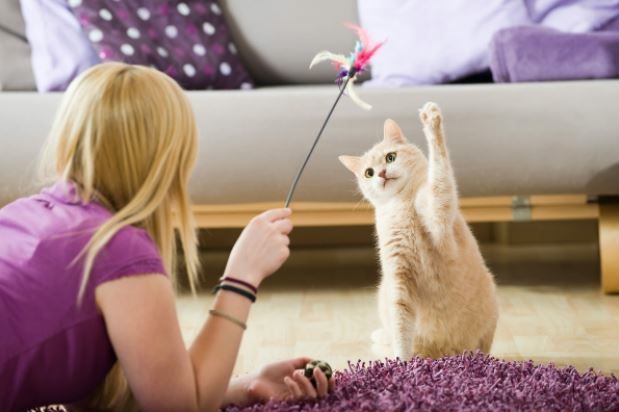
A Guide To Supporting Your Cats Natural Instincts
The history of how cats were first domesticated is fascinating. Felines, unlike canines, were not invited to our homes. They came to hunt. Close to 10,000 years ago, our ancestors abandoned hunting and gathering and embraced farming. Cats found human settlements were better grounds to hunt rodents. To the humans, cats provided a much-needed service, and we fell in love with them.
Cats' ancestors were pure hunters, and modern cats still have this instinct deep within. By supporting a cat’s natural instincts, you help it stay healthy, fit, and sharp. This guide will help you to support your cat’s natural instincts.
Supporting your cat’s liking for a well-groomed body and pristine environments
Cats like to keep themselves as clean as a whistle. They can spend hours grooming, and you may be wondering, “Why does she have an obsession with her looks?”
It is instinct. Cats frequently groom to remove excess fur so that they leave little (or no evidence) of themselves wherever they go. Your kitty is a skilled hunter. She does not want potential prey (or predators) to know that a cat is nearby whenever they stray into her territory.
However, as the cat grooms, they tend to swallow plenty of furs which could accumulate and form furballs in the cat’s gut. Cats would ordinarily have no problem ejecting fur from their guts. But sometimes they need some help.
Support your kitty by feeding her with a high-fiber diet and grooming her frequently with a shedding comb. You will reduce the amount of hair and make it easier for the cat to eject furballs from her gut.
Cats also like clean litter boxes. If your cat is not happy with the litter box, you will know. She would go to extensive lengths to ensure she poops or pees in a clean environment. The same instinct applies. The cat does not want to leave traces of her presence, which would alert prey and predator. To support this behavior, purchase a self-cleaning litter box, or clean it at least twice a day.
Support the instinct to prowl
Most cat owners can tell tales about when the kitty, out of nowhere, pounced on their ankle. It is the hunter in them coming to life, and in most cases, this would happen in the evening.
Perhaps you were scared the first time kitty ever expressed such behavior. The cat must engage in hunting games. They help her to stay fit, and it boosts their brain health.
You can help your cat sharpen her stalking, prowling, and hunting instincts by providing interactive toys. But do not just provide the toys and leave the cat by herself. Plan to play with her for at least 30 minutes every day.
Help your cat to scratch
Your cat will scratch at anything if you fail to provide her with a scratching post or more. Cats like to scratch. It is a form of exercise and their way of marking territory. They also do it to keep their claws in shape.
When your cat scratches, she feels great. It is like yoga for humans. It boosts her physical health and mental wellness.
You cannot stop a cat from scratching. But you can direct it to the appropriate place and avoid damaging your property. Set up a few scratching posts at the exit and entry points of your home. You will help the cat stay happy in her territory, and your furniture will be intact.
Support the instinct to get high
Cats love to get high. They will climb walls, shelves, or any other high pedestal to sit, groom, and watch events from a bird's eye view. Your cat does this to gain an advantage in her territory. She wants to have a vantage viewpoint and pick out any potential prey or predator that may come their way.
How do you support this instinct to get high?
Redecorate your home and install a few high shelves and a climbing pole or a large cat tree. Make sure the cat’s rest area is cozy, neat, and clean. That is the only way the cat will abandon their previous favorite high spots for what you have set up.
Let your cat enjoy spending time alone
Cats, unlike dogs, like to spend time alone. They will hide and spend hours grooming or playing with an interactive toy. Any attempt to disturb her could trigger violent retaliation.
When the cat is grooming, eating, hunting, or doing any other cat-like activity by herself, do not pick her up. You are likely to discover the hard way. The cat wants to be alone.
Support your cat by letting her come to you when she feels like giving and getting a little love and affection.
Concluding remarks: help your cat to play
Whether they are little kitties or adults, all cats love to play. When cats play, they exercise, prowl at each other, hide, and even groom. Play is the one activity that supports the cat in nearly all her natural instincts. You can make it twice as exciting. Consider adopting another cat.















